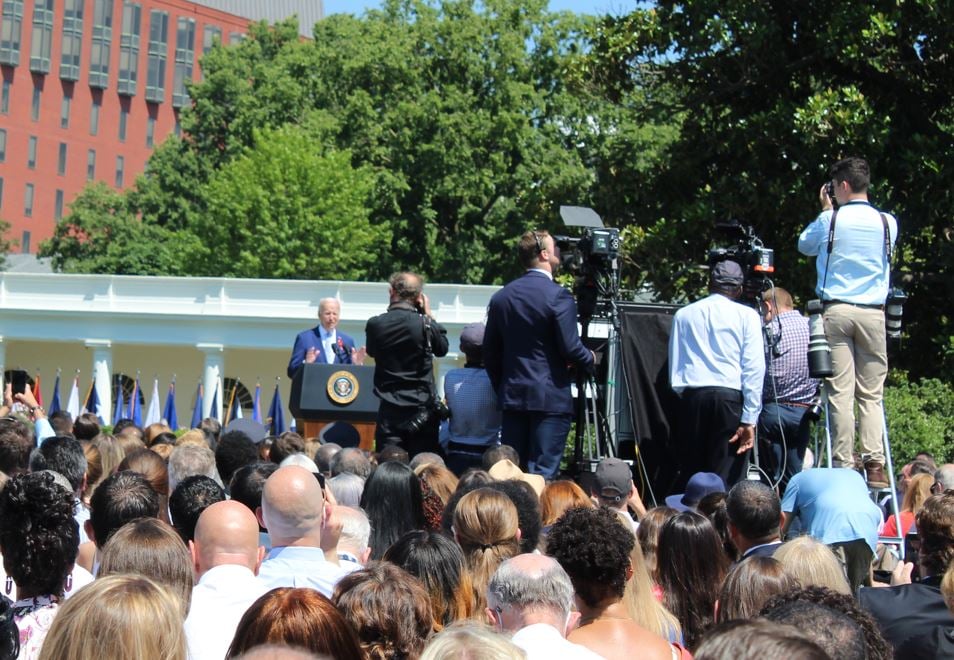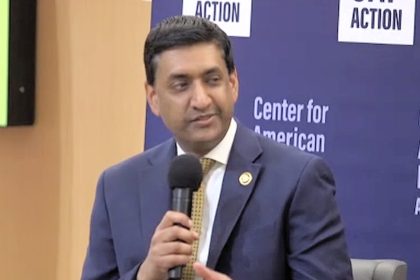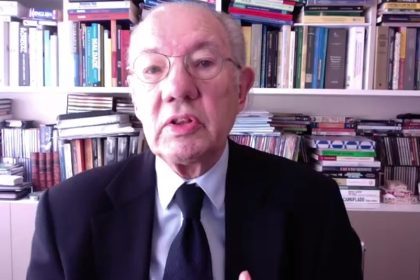AEI Holds Discussion on How Current Trends May Be Reshaping Media

WASHINGTON — As NBC News was dealing with the aftermath of hiring and then firing former Republican National Committee Chairwoman Ronna McDaniel, prominent figures in journalism and academia spoke on what they see as concerning trends reshaping the media landscape and its impact on democratic values.
The McDaniel drama may be just the latest outcome, part of the media “drifting into echo chambers and blurring lines between news and opinion,” according to James Bennet, senior editor for The Economist, speaking at an event on March 27 at the American Enterprise Institute, a public policy think tank.
NBC journalists claim their objection to McDaniel was not about balancing election coverage with a Republican voice, but rather about McDaniel’s endorsement of former President Trump’s claims regarding the outcome of the 2020 presidential election.
Bennett — who was the editorial page editor at The New York Times for four years, until his forced resignation in June 2020 after publishing a controversial op-ed by Sen. Tom Cotton, R-Ark. — believes that America’s decline of trust in institutions, including the media, is due to a culture of “illiberalism” that he claims silences debate, siloes political voices and widens the divide among segments of society.
“Reporters are retreating to the same kind of filter bubbles that readers are so easily able to cocoon themselves in now,” Bennett told the audience during the event.
“Journalists who are supposed to be the best listeners in society are instead not hearing — either on the right or on the left — what people who don’t see the world the way they do are saying.”
The rise of the internet, social media platforms, and even the media subscription model has exacerbated the issue, fostering a demand for clicks and sensationalism according to the speakers.
“The best way to retain the loyalty of subscribers is to … not confront them with opinions that they would find objectionable,” Bennett said.
Concerned that the “ambition to separate news and opinion” is passé and new business models no longer support objectivity, Bennett said, “I don’t know how the diversity of this country can be a strength, rather than a weakness if we don’t have a [variety of voices].”
He said, as he had in an essay in The Economist three years after his ouster, that prestigious publications, like his former employer, “are becoming the publication through which America’s progressive elite talks to itself about an American that does not really exist.”
“I arrived at the conclusion from hard experience,” he told the audience at AEI, adding that “incentives created by the media ecosystems in which we now live [create] the desire to … ratify the view of the tribe.”
“There really is a kind of formal and informal culture of censoriousness that [is] constricting people’s ability to disagree … prominently in the media,” Thomas Chatterton Williams, a contributing writer at The Atlantic, agreed.
“It’s bad because it’s increasing the distance between Americans in the middle of the country and Americans on the coasts,” Eliana Johnson, Washington Free Beacon editor-in-chief, said.
She stated that disapproval within the media was not only stifling dissenting voices and narrowing the spectrum of acceptable discourse but “they [liberal media] are not covering the biggest stories that are happening in the country — transgender medicine, what’s happening on college campuses … They are leaving huge stories and huge white spaces uncovered.”
According to Bennett, “illiberalism” not only undermines the media’s credibility but also deprives readers of informed civic engagement. He’s pushing for prioritizing the public interest over partisan agendas, hoping the media can reclaim its role as a guardian of democracy in an increasingly polarized world.
“Is the role of journalists to tell the reader what to think or to let the reader think for themselves?” Bennett asked. “We don’t trust them to arrive at the right conclusions?”
You can reach us at [email protected] and follow us on Facebook and X..
























